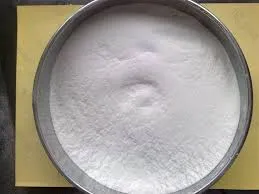
Dùbh . 21, 2024 14:45 Back to list
Is HPMC Dissolved in Water and Its Applications in Various Industries
Is HPMC Soluble in Water?
Hydroxypropyl Methylcellulose (HPMC) is a widely used polymer in various applications, particularly in the pharmaceutical, food, and construction industries. Its unique properties make it an essential ingredient in many formulations. One of the most critical aspects of HPMC is its solubility in water, which affects its functionality and usability in different applications.
What is HPMC?
HPMC is a semi-synthetic polymer derived from cellulose, the primary structural component of plants. It is created by the modification of cellulose through hydroxypropyl and methyl substitution. This modification gives HPMC distinct characteristics, such as solubility in water and the ability to form a gel-like consistency upon dissolution. The degree of substitution and molecular weight of HPMC affect its properties, making it versatile for various uses.
HPMC and Water Solubility
Yes, HPMC is soluble in water, which is one of its most significant features. The solubility of HPMC in water is attributable to its molecular structure. The hydrophilic (water-attracting) groups introduced during the modification process allow HPMC to dissolve in cold water, forming a viscous solution.
The solubility of HPMC can be influenced by several factors
1. Molecular Weight HPMC is available in different molecular weights (low, medium, and high). Generally, lower molecular weight HPMC dissolves more readily in water compared to higher molecular weight variants. The size of the polymer can affect the viscosity and gel-forming capabilities when mixed with water.
2. Concentration The solubility and viscosity of HPMC also depend on its concentration in the solution. At higher concentrations, the solution can become very viscous, which may influence its application in formulations.
3. Temperature HPMC's solubility can be affected by temperature. While it is soluble in cold water, heating the water generally enhances solubility and can accelerate the dissolution process.
is hpmc soluble in water

4. pH Levels The pH of the water can also influence the solubility of HPMC. However, the effect is usually less pronounced compared to the effects of molecular weight and concentration.
Applications of HPMC
HPMC's solubility in water makes it an important ingredient in various industries
- Pharmaceuticals HPMC is often used as a binder in tablets, where it aids in the disintegration and dissolution process. Its ability to form gels can also help in controlled drug release formulations.
- Food Industry In the food sector, HPMC is utilized as a thickening agent, emulsifier, and stabilizer. It helps improve the texture and mouthfeel of various food products while also enhancing moisture retention.
- Construction HPMC is widely used in construction materials, particularly in cement-based formulations. Its water retention properties help maintain the workability of mortars and adhesives, ensuring better adhesion and reducing cracking.
- Cosmetics In cosmetic formulations, HPMC acts as a thickener and film-forming agent, providing a desirable texture and enhancing product stability.
Conclusion
In summary, HPMC is indeed soluble in water, making it a valuable polymer across multiple industries. Its water-soluble nature, combined with the ability to form viscous solutions or gels, allows it to perform a variety of functions—from acting as a binding agent in pharmaceuticals to serving as a thickener in the food industry. Its wide-ranging applications demonstrate the importance of understanding the solubility characteristics of HPMC, as this knowledge is essential for formulating effective products.
Overall, the solubility of HPMC in water not only underscores its functionality but also highlights the significance of polymer chemistry in creating materials that meet specific industry needs. As further research and development occur in the field of cellulose derivatives, HPMC will likely continue to play a crucial role, enabling innovations in both existing and emerging applications.
-
Versatile Hpmc Uses in Different Industries
NewsJun.19,2025
-
Redispersible Powder's Role in Enhancing Durability of Construction Products
NewsJun.19,2025
-
Hydroxyethyl Cellulose Applications Driving Green Industrial Processes
NewsJun.19,2025
-
Exploring Different Redispersible Polymer Powder
NewsJun.19,2025
-
Choosing the Right Mortar Bonding Agent
NewsJun.19,2025
-
Applications and Significance of China Hpmc in Modern Industries
NewsJun.19,2025







